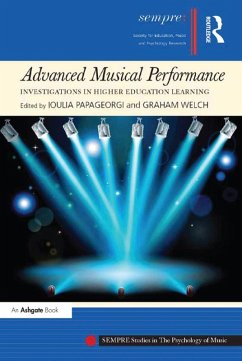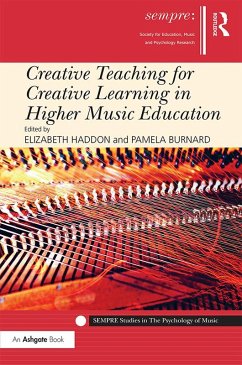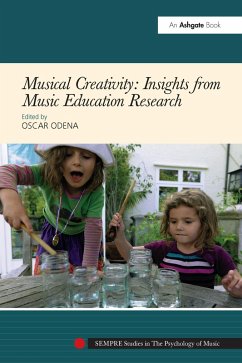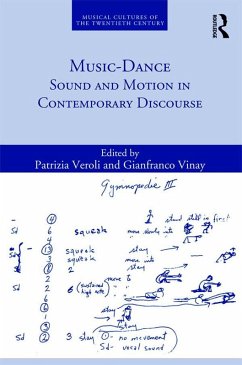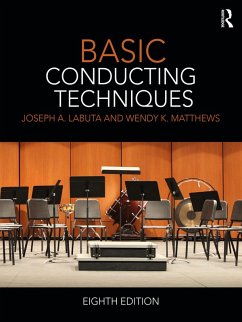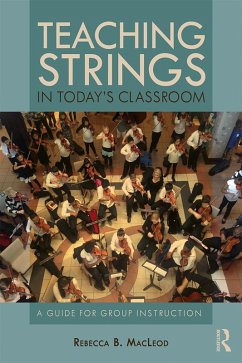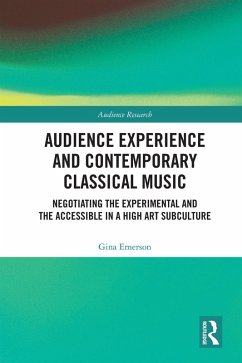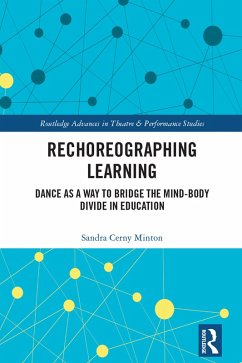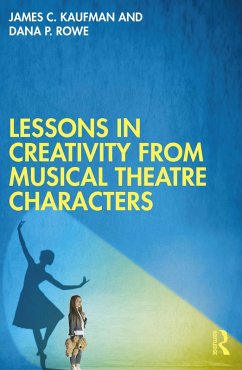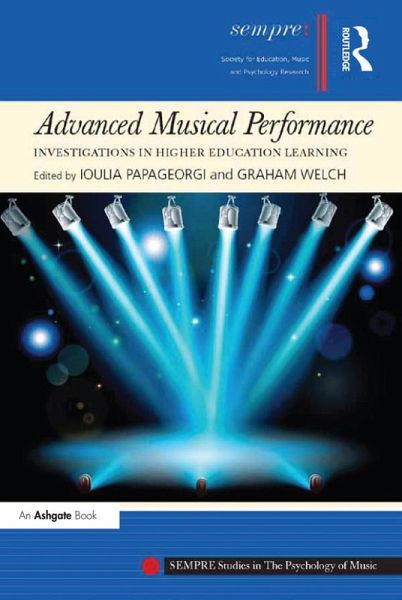
Advanced Musical Performance: Investigations in Higher Education Learning (eBook, PDF)
Versandkostenfrei!
Sofort per Download lieferbar
49,95 €
inkl. MwSt.
Weitere Ausgaben:

PAYBACK Punkte
25 °P sammeln!
To reach the highest standards of instrumental performance, several years of sustained and focused learning are required. This requires perseverance, commitment and opportunities to learn and practise, often in a collective musical environment. This book brings together a wide range of enlightening current psychological and educational research to offer deeper insights into the mosaic of factors and related experiences that combine to nurture (and sometimes hinder) advanced musical performance. Each of the book's four sections focus on one aspect of music performance and learning: musics in hi...
To reach the highest standards of instrumental performance, several years of sustained and focused learning are required. This requires perseverance, commitment and opportunities to learn and practise, often in a collective musical environment. This book brings together a wide range of enlightening current psychological and educational research to offer deeper insights into the mosaic of factors and related experiences that combine to nurture (and sometimes hinder) advanced musical performance. Each of the book's four sections focus on one aspect of music performance and learning: musics in higher education and beyond; musical journeys and educational reflections; performance learning; and developing expertise and professionalism. Although each chapter within its home section offers a particular focus, there is an underlying conception across all the book's contents of the achievability of advanced musical performance and of the important nurturing role that higher education can play, particularly if policy and practice are evidence-based and draw on the latest international research findings. The narrative offers an insight into the world of advanced musicians, detailing their learning journeys and the processes involved in their quest for the development of expertise and professionalism. It is the first book of its kind to consider performance learning in higher education across a variety of musical genres, including classical, jazz, popular and folk musics. The editors have invited an international community of leading scholars and performance practitioners to contribute to this publication, which draws on meticulous research and critical practice. This collection is an essential resource for all musicians, educators, researchers and policy makers who share our interest in promoting the development of advanced performance skills and professionalism.
Dieser Download kann aus rechtlichen Gründen nur mit Rechnungsadresse in A, B, BG, CY, CZ, D, DK, EW, E, FIN, F, GR, HR, H, IRL, I, LT, L, LR, M, NL, PL, P, R, S, SLO, SK ausgeliefert werden.




